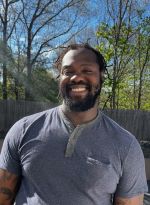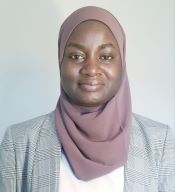Current Scholars
Preshit N. Ambade
Preshit Ambade, DrPH, MHA, is an Assistant Professor of Research with a background in public health policy and physician training in an integrated system of allopathic and Ayurvedic medicine. Dr. Ambade obtained his DrPH from the Mel and Enid Zuckerman College of Public Health at the University of Arizona and an MHA from the Tata Institute of Social Sciences in Mumbai, India. He has completed postdoctoral training at the Ottawa Hospital Research Institute in Canada and Augusta University in the USA, focusing on various health policy topics. Before moving to North America, he served as a “Prime Minister’s Rural Development Fellow,” appointed by the Ministry of Rural Development, Government of India, to work in one of the country’s development-deficient areas. With extensive academic and non-academic experience in health policy and expertise in applied econometrics, primary and secondary data analysis, as well as program and economic evaluations, his current research focuses on workplace mental health and well-being, ageing-related health policies, healthcare financing models, and global health. He has published his research articles on these topics in several reputed public health journals.
Carly Camplain
Dr. Carolyn (Carly) Camplain (she/they) is an Assistant Professor at Indiana University School of Public Health-Bloomington in the department of Applied Health Sciences. She is a scientific and legal researcher who bridges the fields of public health, Indigenous studies, law, and criminal justice through interdisciplinary research. This research aims to transform the criminal legal system into a space that actively promotes healing and cultural values, rather than perpetuating harm. Dr. Camplain’s primary focus is on Indigenous people, Native Nations, and correctional facilities in Indian Country (tribal jails). She has her JD from Arizona State University’s Sandra Day O’Connor College of Law and her PhD in Interdisciplinary Health-Health Equity from Northern Arizona University.
Shanting Chen
Dr. Shanting Chen is an Assistant Professor of Psychology at the University of Florida. She received her PhD in Human Development and Family Sciences from the University of Texas at Austin and a B.A. in Psychology from the University of Minnesota-Twin Cities. She completed her postdoctoral training in the School of Education and Social Policy Department at Northwestern University. Her research interests have broadly centered on the intersection of stress, race/ethnicity, cultural contexts, and social inequality. Specifically, she explores how socio-cultural (e.g., ethnic/racial socialization, social support) and bio-behavioral (e.g., sleep, cortisol, allostatic load) factors that can be leveraged to promote adolescent development in the face of inequality. Her work integrates diverse methodologies such as longitudinal, daily diary designs, and ecological momentary assessments to understand both short-term and long-term developmental mechanisms. Her research is theoretically driven by ecological theory, the integrative model of minority child development, and the biopsychosocial models. She has published over 30 peer-reviewed papers in top-tiered journals such as Child Development, Social Science and Medicine, and Developmental Psychology. In her free time, she enjoys playing with her toddler and participating in running events organized by Florida Track Club.
Brianna Jackson
Dr. Brianna Jackson is a Psychiatric-Mental Health Registered Nurse and newly appointed Assistant Professor at the University of Wisconsin-Madison School of Nursing. She is a recent PhD graduate of Yale University and completed her Postdoctoral training with the National Clinician Scholars Program at the University of California, San Francisco (UCSF). Brianna is committed to investigating the confluence of psychosocial trauma and resilience among youth who are marginalized by inequity, including those who are in foster care, involved with the justice system, or are experiencing homelessness. She has a love for community engagement, and has supported a variety of historically disadvantaged and socially marginalized pediatric and young adult populations across diverse contexts. Brianna’s research interests closely align with her professional nursing experience. She uses mixed methods and arts-based approaches to examine complex biopsychosocial factors influencing mental health and wellbeing, and to support the development of comprehensive clinical interventions.
Elizabeth Jelsma
Elizabeth Jelsma, PhD, (she/her) is an Assistant Professor of Psychological, Health, and Learning Sciences in the College of Education at the University of Houston. She is jointly appointed in the Human Development & Family Sciences (undergraduate) and School Psychology (doctoral) programs. She earned a PhD in Human Development and Family Sciences (HDFS) from the University of Texas at Austin and completed a NIMHD-funded postdoctoral fellowship in HDFS at Michigan State University. Her research investigates health and social inequities across the life course among racially and ethnically minoritized families in the United States. Dr. Jelsma is also a 2025-2026 National Institutes of Health, National Heart, Lung, and Blood Institute (NHLBI), Programs to Increase Diversity among Individuals Engaged in Health-Related Research (PRIDE) scholar. Currently she is investigating how family members are affected by each other’s experiences of racial/ethnic discrimination and stress spillover within racially and ethnically minoritized families. She has established publication records by leading or co-authoring research articles in over 16 high-impact peer-reviewed journals.
Jennifer Kowalkowski
Dr. Kowalkowski is an Assistant Professor in the Ross and Carol Nese College of Nursing at The Pennsylvania State University (PSU), and a faculty affiliate with the PSU Rock Ethics Institute, Center for Geriatric Nursing Excellence, and Clinical and Translational Research Institute. After completing her BS in Nursing at the University of Wisconsin-Madison (UW-Madison), she went on to earn an MS in Nursing with an emphasis in education, an MPH, and a PhD in Nursing with a minor in Population Health Sciences at UW-Madison. Upon completing her doctorate, she was a post-doctoral scholar in Rural Health Disparities in the Department of Biobehavioral Health at PSU. Dr. Kowalkowski’s program of research focuses on social processes that create structural barriers to optimal health and well-being among rural and agricultural populations. Using mixed methods, she explores the intersection of occupation and health to understand the processes and mechanisms that contribute to physical and mental well-being among agricultural producers (farmers). Her work advances our understanding of factors that mitigate adverse effects of occupational stress on health outcomes, including suicide, for farmers. Her experiences as a Registered Nurse and deep roots in agriculture fuel her current work around farmer health and well-being, as well as her commitment to improving access to health supporting services and resources for farmers and farm families in the communities where they live.
Lea A. Marineau
Lea A. Marineau, PhD, CRNP, ANP-BC is a Postdoctoral Research Fellow at the Behavioral Pharmacology Research Unit of the Johns Hopkins University School of Medicine. Her program of research has focused on multilevel factors associated with violent injury and substance use among young Black men and the environmental context of community violence. She is transitioning to studying the intersection of substance use and trauma, psychosocial and clinical predictors of substance use treatment outcomes, and substance use interventions applied in real-world settings. She earned her PhD in Nursing and Master of Science in Nursing from Johns Hopkins University. Her pre-doctoral work was funded by the Ruth L. Kirschstein National Research Service Award (F31DA053029) and a pre-doctoral Fellowship in Trauma and Violence (T32HD064428). Her previous clinical work as an adult nurse practitioner was in orthopedic trauma and primary care.
Natalie M. Papini
Natalie Papini, PhD, M.A. is an Assistant Professor in the Department of Health Sciences at Northern Arizona University, where she teaches in the Interdisciplinary Health PhD program. Her research explores self-compassion, weight stigma, and inclusive health coaching, with a focus on vulnerable populations including men with binge eating, pregnant and postpartum individuals, and long-haul truck drivers. She also investigates implementation strategies to promote mental and physical well-being across diverse settings. Her work has been published in Body Image, Journal of American College Health, Women’s Health Issues, and Psychological Medicine. Dr. Papini earned her PhD in Interdisciplinary Health and M.A. in Clinical Psychology with an emphasis in health psychology from Northern Arizona University. She currently serves as Co-Chair of the Women's Health Special Interest Group for the Society of Behavioral Medicine.
Kate Perepezko
Kate Perepezko, PhD, MSPH, is an Assistant Research Scientist at the Scripps Gerontology Center at Miami University. She earned her PhD in Mental Health and MSPH in Social and Behavioral Interventions from the Johns Hopkins Bloomberg School of Public Health. Her dissertation examined how patient, care partner, and dyadic factors contribute to quality of life among people living with Parkinson’s disease. Dr. Perepezko completed her postdoctoral training at the National Rehabilitation Research and Training Center on Family Support, where she collaborated with the Allegheny County Area Agency on Aging on a study of the Community Aging in Place – Advancing Better Living for Elders (CAPABLE) program that included care partner participation. She has experience leading quantitative, qualitative, and mixed-methods studies. Her current research focuses on developing, adapting, and implementing interventions to enhance quality of life and functioning for older adults and their care partners. She is particularly interested in developing interventions that promote care partner inclusion in existing health and social service systems as a way to improve outcomes for both older adults and their support networks. Dr. Perepezko is committed to engaging community members throughout the research process to ensure interventions are both practical and sustainable.
Anastasia Rogova
Anastasia Rogova, PhD, is a postdoctoral fellow in the Department of Health Services Research, The University of Texas MD Anderson Cancer Center. She received her PhD in Anthropology from the University of British Columbia, Canada. Dr. Rogova’s research centers on shared decision-making in cancer prevention and treatment, with a focus on developing and implementing patient decision aids and shared decision-making interventions in clinical practice. She has a particular interest in expanding access to preventive care, including cancer screenings, for individuals with behavioral health conditions and advancing the integration of high-quality shared decision making within behavioral healthcare settings. With a background in anthropology, Dr. Rogova brings an interdisciplinary perspective to her work, aiming to develop culturally responsive interventions that foster meaningful patient engagement in healthcare decisions.
Ana Cecilia Sala
Dr. Ana Cecilia Sala earned her doctorate in clinical psychology from the Ponce School of Medicine (now PHSU) and later completed a postdoctoral fellowship in health psychology at UF Shands Hospital (now UF Health) in Jacksonville, FL. In 2016, she obtained a postdoctoral master's degree in clinical and translational research. Her research interests focus on applying Focused Acceptance and Commitment Therapy to help cancer survivors manage emotions across different stages of care, as well as examining how emotions influence disease management. More recently, she has shifted her research to investigate the effects of stress on patient-physician communication and explore the potential of AI tools to improve dialogue. Dr. Sala currently serves as an Assistant Investigator and Associate Director of the UPR-CCC Behavioral Oncology Clinic.
Lainey Sevillano
Dr. Lalaine (Lainey) Sevillano is an Assistant Professor of Social Work at California State University, Long Beach (CSULB). A Pilipinx immigrant and first-generation MotherScholar, she is an interdisciplinary minority health researcher whose work is grounded in indigenist, decolonial, and critical race frameworks. Her current work focuses on protective cultural processes (e.g., cultural connectedness) that buffer against traumatic stressors (e.g., colonial legacies and racialized discrimination), that impact mental and physical health outcomes amongst minoritized populations, particularly Pilipina/o/x Americans. Dr. Sevillano is a Fellow in the NIH-funded INSPIRE program for Indigenous substance use prevention and was recently selected as a Health Disparities Research Institute Scholar by the NIMHD. Her work is currently supported by the NIH and the CDC. Through her research, she aims to advance health equity and promote culturally responsive approaches to healing and resistance.
Agus Surachman
Agus Surachman, PhD (he/him), is an Assistant Professor in the Department of Epidemiology at Drexel University's Dornsife School of Public Health. Agus is interested in understanding the role of life course socioeconomic status (SES) as a critical social factor that differentiates access to gain and accumulate resources that promote health and avoid diseases. In addition, his research examines the impact of social stratifications on psychological factors implicated in health disparities through the lens of the daily stress process. One major pathway that links the daily stress process to disease is accelerated aging, an important biological marker for multiple chronic diseases, for which there are known SES and racial disparities. He examines accelerated aging through multiple physiological pathways, including epigenetic age acceleration, inflammation, metabolic syndrome, and accelerated renal aging.
Deshira Wallace
Deshira Wallace, PhD, MPSH is an Assistant Professor in the Department of Health Behavior at the University of North Carolina at Chapel Hill. Her program of research focuses on on 3 key areas, applied in the United States and in Latin America and the Caribbean to address health inequities. These areas are to: (1) examine the intersection between mental and physical health for minoritized communities; (2) assess ethnoracial heterogeneity in health outcomes among Black and Latine communities with a focus on racialization; and (3) improve the measurement of psychosocial constructs for minoritized communities. She earned her PhD in Health Behavior from the University of North Carolina at Chapel Hill, and her BA in Environmental Sciences and Policy from Duke University.
Jessica West
Jessica S West, PhD, MPH is a medical sociologist and Assistant Professor in the Department of Head and Neck Surgery & Communication Sciences at the Duke University School of Medicine. Dr. West’s program of research focuses on the health and well-being of people with hearing loss across the life course. She is particularly interested in the stigma associated with hearing loss and hearing devices and how to reduce it. She has expertise in applying life course and stress theories to hearing loss research, integrating population- and patient-level data, and using statistical methods to analyze the social determinants of health in the context of hearing loss. Dr. West’s work has been supported by competitive funding, including the Duke University Graduate School’s Phillip Jackson Baugh Fellowship, the Duke Aging Center’s Maddox Fellow Award, the American Auditory Society’s New Investigator Award, a National Institute on Aging (NIA) T32 Postdoctoral Research Training Program, and an NIA Diversity Supplement. She completed her PhD in Sociology at Duke University, her MPH in Sociomedical Sciences (with a Certificate in Public Health Research Methods) at Columbia University, and her BA in Social Anthropology (with a minor in Medical Anthropology) from the University of Michigan.
 Lydia ahn
Lydia ahn
Lydia Ahn, PhD is an Assistant Professor in the School of Counseling and Counseling Psychology at Arizona State University. Her program of research investigates 1) the effects of racism on health outcomes among racial/ethnic minority adolescents and emerging adults, 2) familial protective factors, including ethnic-racial socialization, attachment, and parenting, and 3) methods of healing including intervention and prevention programs and psychotherapy. Her work has been published in the Journal of Counseling Psychology, Cultural Diversity and Ethnic Minority Psychology, and Child Development. In her previous clinical work, she worked with families, college students, and community clients. She received her PhD in the APA-accredited Counseling Psychology program at the University of Maryland, College Park, her M.S.Ed at the University of Pennsylvania, and B.A. at the University of Wisconsin-Madison.
 Maggie Butler
Maggie Butler
Maggie Butler PhD, CLC (she/her/hers) is a Postdoctoral Fellow in the Center of Excellence in Maternal and Child Health at the University of Illinois Chicago. Dr. Butler’s research focuses on postpartum health and well-being, particularly the intersection of infant feeding decisions and mental health. Her dissertation work was a biosocial, mixed methods examination of Chicagoland birthing peoples’ preparation for both breastfeeding and postpartum depression. More broadly, her research explores inequities experienced by birthing people and their families related to lactation and parenting in Chicagoland and the United States. She completed her PhD in Anthropology and a certificate in Society, Biology, and Health at Northwestern University and is also a certified lactation counselor.
 Alice Fiddian-Green
Alice Fiddian-Green
Alice Fiddian-Green, PhD, MPH is Assistant Professor of Public Health in the School of Nursing and Health Professions at the University of San Francisco. She earned her PhD in Public Health (with a minor in anthropology) from the University of Massachusetts Amherst. Alice is an interdisciplinary public health scholar with over ten years of experience using critical public health storytelling methods (e.g., digital storytelling, photovoice, ‘zines). Alice’s current program of research applies a reproductive justice framework to examine the intersections of interpersonal and institutional violence, mental health, and substance use. She uses public health storytelling methods to center the voices of people directly impacted by substance use, and to inform the implementation and de-implementation of programs and policies that promote health equity. Alice previously conducted research with pregnant people and mothers with opioid and polysubstance use disorders, and is currently focused on intervention development to promote social connection, community resilience, and collective community capital to reduce the impact of substance use on youth, families, and communities.
 Alein Haro-Ramos
Alein Haro-Ramos
Alein Y. Haro-Ramos, PhD, MPH (she/her/ella) is a UC President’s Postdoctoral Fellow in the Program of Public Health (Health, Society, & Behavior) at UC Irvine. She earned a PhD in health policy from UC Berkeley, specializing in Population Health Science, and an MPH from UCLA. Her research interests include health and social inequities across the life course among racialized communities in the U.S., particularly focusing on the nexus of race, ethnicity, and citizenship status. Currently, her research centers on understanding the health and healthcare use of older undocumented immigrants in Los Angeles County. Dedicated to utilizing research findings for policy and practice solutions aimed at remedying and preventing the exacerbation of health disparities, she has garnered support for her work from the Health Policy Research Scholars program, the Robert Wood Johnson Foundation, the Institute for Research on Labor and Employment at UC Berkeley, and the Graduate Division Berkeley Fellowship.
 Winston Kennedy
Winston Kennedy
Dr. Kennedy is currently an assistant professor at Northeastern University was born in Boston and grew up in South Florida. He earned a doctorate in physical therapy in 2015. He also earned a master’s degree in public health and a PhD in Kinesiology with a concentration in adapted physical activity in 2020 and 2022 Respectfully. Dr. Kennedy conducts research that supports the health and well-being of people with disabilities at their intersecting identities with a focus on physical activity promotion. Dr Kennedy is also interested in understanding, and ultimately influencing, healthcare professional curricula in order to train health professionals to work with and better support people with disabilities.
 Jiaming LIang
Jiaming LIang
Dr. Jiaming Liang is a Postdoctoral Researcher at the University of Southern California (USC) Alzheimer Disease Research Center (ADRC). Dr. Liang completed his PhD in Social Work with a concentration in Community-Based Research & Practice from the USC Suzanne Dworak-Peck School of Social Work in 2022. Prior to this, he earned a Master of Applied Psychology from Zhejiang University (ZJU) in China, and worked as a clinical psychotherapist intern at ZJU Psychological Health Center and the Hangzhou Seventh People's Hospital. As a gerontological social work researcher, Dr. Liang's primary focus is on enhancing the physical and mental health, as well as the overall quality of life, for older adults and their families from various racial/ethnic and cultural backgrounds. He has established publication records by leading or co-authoring research articles in over 10 high-impact peer-reviewed journals
 Kafayat Mahmoud
Kafayat Mahmoud
Kafayat O. Mahmoud holds a Dual Title PhDin Sociology and Gerontology from the University of Kansas. She is currently a Postdoctoral Research Associate at the Center for Innovation in Social Sciences at Boston University. Her research interests include medical sociology, life course and aging, population health, social connectedness, and end of life. Kafayat has been a Policy Fellow at the National Academies of Sciences, Engineering and Medicine, an Andrew W. Mellon Foundation Doctoral Research Fellow, and Institute for Policy and Social Research Fellow where she has continued to conduct quantitative and qualitative research, as well as employ interdisciplinary insights to address social and health disparities among the population. Recent Publications: “The Need to Appear Healthy: Concealment of Chronic Illness, Privacy, and Self-Sufficiency Among Chronically Ill Older Nigerians” Kafayat Mahmoud; Tamara Baker; Darlingtina Esiaka; Saliu Balogun (Innovation in Aging, 2024)
 Christina Marea
Christina Marea
Christina X. Marea, PhD, MA, FACNM is a certified nurse midwife, educator, researcher and Assistant Professor at the Georgetown University School of Nursing. Dr. Marea received a Master’s degree in Conflict Resolution from the University of Bradford, funded by Rotary World Peace fellowship, where she studied how post-conflict reconstruction addressed the sexual and reproductive health needs of women in Sierra Leone. She received her Master of Science in Nursing at the Yale University School of Nursing where she also served as the director of the Haven Free Clinic – a voluntary clinic run by the Yale health professional schools – serving undocumented immigrants. Dr. Marea received her PhD from the Johns Hopkins University School of Nursing where she received NIH-funding through the T32 institutional training fellowship for violence in the family and the TL1 Predoctoral Clinical Research training program. Dr. Marea completed her post-doctoral fellowship at the Georgetown-Howard Consortium for Clinical and Translational Sciences, and is a current KL2 junior faculty scholar. Professor Marea's research is at the intersection of reproductive justice, health disparities, and health system opportunities to transform care and outcomes for structurally marginalized people. As a clinical educator, Professor Marea seeks to increase the capacity of reproductive health care providers to provide excellent care to structurally marginalized. Dr. Marea currently practices midwifery at Community of Hope (COH), an FQHC in Washington D.C. Dr. Marea is the Co-PI with Ebony Marcelle, Director of Midwifery at COH, on the Hillman Foundation Innovation in Care Award that is providing $600,000 for the study of the feasibility, acceptability and impact of a 12-month model of postpartum care implemented in a community setting, and with an explicit aim to mitigate the negative health effects of racism on Black birthing people in DC.
 Larissa McGarrity
Larissa McGarrity
Dr. Larissa McGarrity is a clinical health psychologist, Assistant Professor (Clinical), and Chief of the Section of Psychology in the Department of Physical Medicine and Rehabilitation at the University of Utah. Dr. McGarrity’s clinical and translational research program focuses on psychosocial health among patients with severe obesity, especially in the bariatric surgery context. Dr. McGarrity is particularly interested in broadening the focus in the field from the near-exclusive study of pathology and risk factors toward the study of resilience and patient and family strengths that can be channeled into effective and accessible interventions for this highly stigmatized patient population. Her current K12 award supports a pilot randomized controlled trial examining feasibility, acceptability, and proof of concept for ReConnect (Reimagining Us in the Context of Bariatric Surgery), a remotely-delivered dyadic positive psychology intervention adapted for post-bariatric surgery patients and their romantic partners.
 Jyotsana Parajuli
Jyotsana Parajuli
Dr. Parajuli is an assistant professor in the School of Nursing and an affiliate faculty in the Gerontology Program at University of North Carolina at Charlotte (UNCC). She received her PhD in Nursing from The Pennsylvania State (Penn State) University with a focus on aging and palliative care and a master’s degree in Gerontology from Miami University. She was one of the recipients of the 2020 Center for Geriatric Nursing Excellence (CGNE) Student Champion Award from Penn State College of Nursing. Her research experiences encompass various issues related to older adults including health disparities and social determinants of health, cognitive function including dementia and Alzheimer’s disease, management of chronic conditions or multimorbidity, and long-term care. Her current research focuses on palliative and end of life care in older adults with cancer. She received the Faculty Research Grant from UNCC in 2021 where she used a mixed methods approach to examine factors affecting advance care planning (ACP) and how family caregivers engage in ACP decision-making among older adults with cancer. She is currently disseminating findings of this study. Dr. Parajuli has been nominated as the CHHS exemplar for the 2022 and 2023 Faculty Excellence Award in Research at UNCC two years in a row. She has published in several gerontology, oncology, and palliative care related peer reviewed journals such as Aging & Mental Health, The Gerontologist, Research on Aging, Journal of Geriatric Oncology, Cancer Nursing, Journal of Hospice and Palliative Nursing, American Journal of Hospice and Palliative Medicine, Journal of Palliative Medicine etc.
 Michele Wong
Michele Wong
Michele J. Wong, PhD, is a Postdoctoral Scholar with the Initiative to Study Hate, housed in the Division of Social Sciences at UCLA. Dr. Wong’s program of research seeks to understand how intersecting oppressions, such racism and sexism manifest in gendered racism to influence health and well-being among Asian American women both structurally (e.g., through systemic mechanisms within institutions such as the workplace) and through individual perceptions. Specifically, her work focuses on 1) exploring the embodied experiences of intersectional stressors, such as gendered racism and other cultural stereotypes among Asian American women, examining its impacts on mental health and physical well-being, 2) examining the structural manifestations of intersectional stressors in the workplace, focusing on gendered racism and their impact on Asian American women’s work and mental health outcomes, 3) examine forms of resistance, healing, and coping that help buffer against the negative effects of gendered racism, and 4) develop culturally relevant evidence-based interventions that address gendered racism at multiple levels. Dr. Wong graduated with her PhD in Social Welfare at the UCLA Luskin School of Public Affairs in 2023 and MS in Community Health Sciences at the UCLA Fielding School of Public Health in 2017. Her work has been funded by the Southern California NIOSH Education and Research Center Pilot Project Research Training Program grant and the OKURA research grant on Asian American mental health.
 Brandon Yates
Brandon Yates
Brandon Yates, PhD, is a post-doctoral researcher in the Department of Physical Medicine and Rehabilitation at Harvard Medical School and Spaulding Rehabilitation Hospital. Dr. Yates completed his Ph. D in Musculoskeletal Health Sciences at Indiana University School of Medicine and an M.S. and B.S. in Exercise Science at University of Connecticut and Indiana University, respectively. The overarching focus of his research is on elucidating the neurophysiological interactions between skeletal muscle and brain health and how to improve physical and cognitive function via lifestyle medicine interventions. His current line of research focuses on understanding the influence of hallmarks of aging/geroscience on critical illness severity and post-intensive care syndrome. His work is currently supported by an NIH/NIA D-SPAN F99/K00 award.
 Jiao Yu
Jiao Yu
Dr. Jiao Yu is a Postdoctoral Associate in the Department of Health Policy and Management at the Yale School of Public Health. She received her PhD in Sociology from Case Western Reserve University. Her research strives to shed light on how health inequality is determined, sustained, and manifested within the context of population aging. Her work examines social determinants of health over the life course, with a particular interest in the intersection of environment, aging, and health disparities. Her current research investigates how bio-physiological and neighborhood factors drive racial health disparities among older adults and how behavioral and social factors influence healthy aging in later life. As a quantitative researcher, she employs cutting-edge statistical techniques and machine learning methodologies to unravel the social determinants of place-based health disparities among older adults.